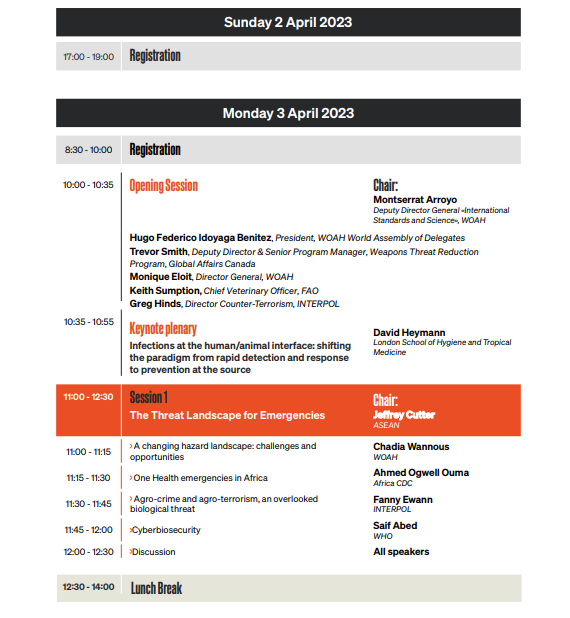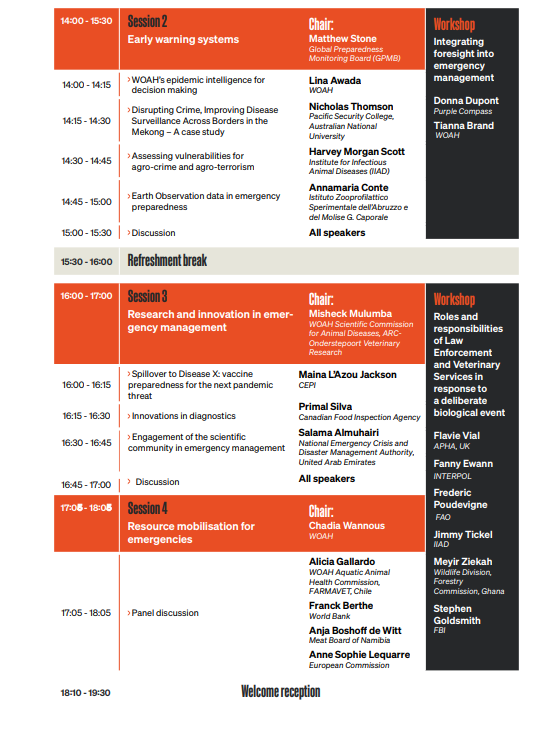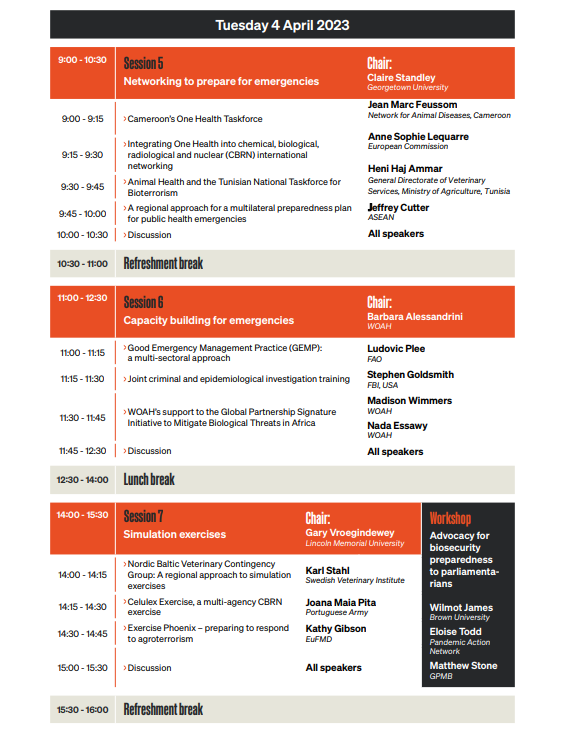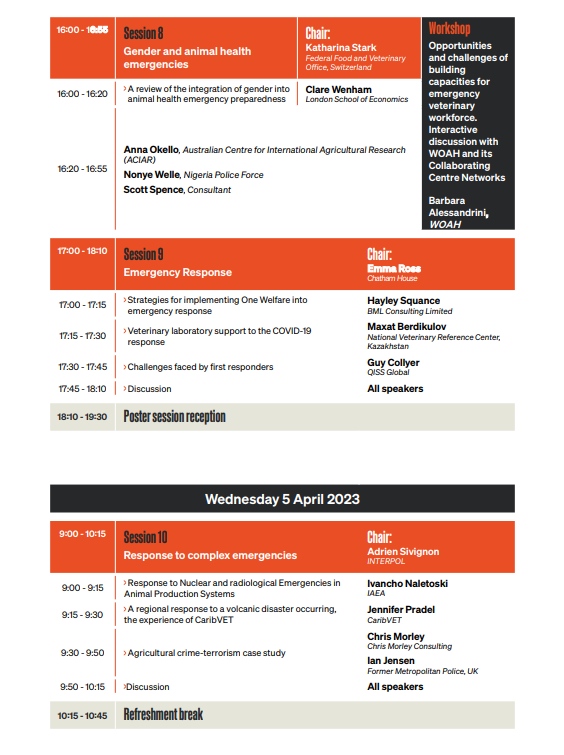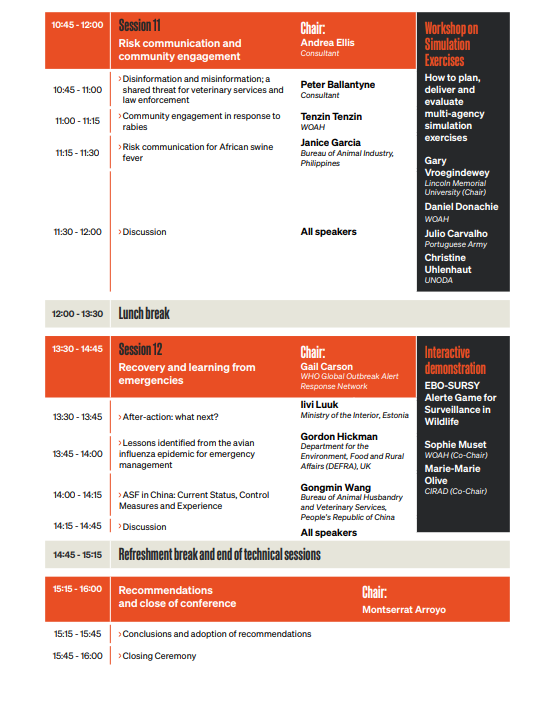Global Conference on Emergency Management

Tackling shared threats
for a safer world
We live in a highly uncertain and dangerous world where emergencies can impact all parts of society. The drivers and causes of emergencies are trending upwards meaning that emergencies are expected to increase in their frequency, complexity and severity which threatens One Health and Global Health Security.
With the support of the United States Department of Defense, Defense Threat Reduction Agency (DTRA), Weapons Threat Reduction Program of Global Affairs Canada, the UK Ministry of Defence and the European Union, WOAH hosted the first global conference of its kind which brought together multiple sectors to discuss emergencies that involve or impact animals.
The Conference highlighted that emergency preparedness needs to take an all-hazards approach involving multiple sectors and explored how this can be operationalised. The conference showcased innovative and sustainable solutions to mitigate and manage emergencies and convened leading experts to explore the way forward for multi-sectoral and all-hazards emergency preparedness. The Conference aimed to bridge the gap between animal health and security by highlighting how the two sectors can support each other in emergency management including for deliberate biological events such as agro-crime and agro-terrorism.
The Conference brought together over 400 participants including: Delegates of WOAH Members, emergency management experts, national Law Enforcement representatives, relevant international and regional organisations, as well as donors and stakeholders all with a shared interest to collaborate.
Objectives
Highlight that emergency preparedness needs to take an all hazards approach involving multiple sectors
Strengthen and broaden multi-sectoral networks
Promote gender equality
Present the outcomes of the WOAH-FAO-INTERPOL collaboration*
*Project on Building Resilience Against Agro-Crime and Agro-Terrorism (supported by Global Affairs Canada) and development of a road map for future international and interagency activities
How did we achieve these objectives?
By showcasing innovative approaches
By sharing good practices
By engaging participants in active discussion
By inspiring participants to go home and take action – reaching out to other sectors, organising simulation exercises and advocating to governments
Participation
The WOAH Global Conference on Emergency Management took place in Paris from Monday 3 to Wednesday 5 April 2023, and was conducted in face-to-face format, with participation by invitation only.
The Conference featured simultaneous interpretation in English, French, Spanish and Arabic with daily sessions webcasted via the website.
The Conference was addressed to Delegates from all 182 WOAH Members and experts from their national emergency management programme. Law Enforcement experts belonging to WOAH-INTERPOL Members were also present at the Conference, together with other WOAH key stakeholders and partners.
For questions related to this Conference please contact [email protected]
Scientific Committee
Dr Fanny Ewann
Dr Rickard Knutsson
Dr Pastor Alfonso
Dr Henry Mutembei
Mr Sisira Madurapperuma
Mr David Elliott
WOAH Staff
Daniel Donachie
Chadia Wannous
Keith Hamilton
Moetapele Letshwenyo
Madison Wimmers
Recording
Day 1
Day 2
Day 3
Agenda of the Conference
Parallel Workshops
An overview of workshops which took place in parallel to the Conference.
Workshop 1: Integrating foresight into emergency management
Date: Monday 3 April, 14:00-15.30
Chairs: Tianna Brand, Donna Dupont, World Organisation for Animal Health, Purple Compass
This interactive 90-minute workshop provided an opportunity for participants to engage with ‘foresight’ scenarios to explore potential future emergency management operating environments with a focus on agro-crime and agro-terrorism.
These scenarios are designed to facilitate strategic conversations about change and uncertainty, by exploring emerging issues just over the horizon. This session will seek to challenge the status quo and assumptions about the future of emergency management. Participant insights and ideas will be captured to outline potential future opportunities for policy, innovation and/or investment in emergency management capabilities to support adaptive capacity, and ensure the field remains fit for purpose moving into the future.
Workshop 2: Roles and responsibilities of Law Enforcement and Veterinary Services in response to a deliberate biological event
Date: Monday 3 April, 16.00-18.00
Chairs: Flavie Vial, Fanny Ewann, Animal and Plant Health Agency (APHA), INTERPOL
This workshop discussed how veterinary services and law enforcement need to work together to prevent, prepare and respond in a common approach to protect the public in the event of a deliberate biological incident.
Speakers: Frederic Poudevigne, Jimmy Tickel, Meyir Zieka, Stephen Goldsmith, Food and Agriculture Organization for the United Nations, Institute for Infectious Animal Diseases, Wildlife Division, Forestry Commission, Federal Bureau of Investigations
A wide range of crimes can contribute to disease spread, whether accidentally or intentionally, among wildlife, livestock and domestic animals. During the workshop, we will exchange on the existing good practices and challenges to sharing information, establishing common procedures and coordinating joint responses, with a view to feed a roadmap to enhance collaboration between the two sectors in animal disease emergency management.
Workshop 3: Advocacy for biosecurity preparedness to parliamentarians
Date: Tuesday 4 April, 14.00-15.30
Chairs: Wilmot James, Eloise Todd, Brown University, Pandemic Action Network
Led by former Parliamentarian and leader in pandemic preparedness and biosecurity research, Wilmot James was joined by experts to share their experiences on how to advocate successfully for Delegates to apply in their current – and future – work. The session shared helpful insights and tips from those that have been making change happen for campaigns, causes and in Parliaments for decades.
Emergencies are increasing in frequency, complexity and severity. As biological threats from nature or from deliberate release of biological agents increase, so the role of Veterinary Services is also set to increase. By showcasing innovative approaches to advocacy, partnerships and communications, this session prepares WOAH Delegates for the kind of work they are likely to be involved in during the months and years ahead – communicating with non-experts to make the case for investing in animal health and advocating to decision makers with the power to decide budgets.
Workshop 4: Opportunities and challenges of building capacities for emergency veterinary workforce
Date: Tuesday 4 April, 16.00-17.00
Chair: Barbara Alessandrini, World Organisation for Animal Health
An interactive discussion with WOAH and its collaborating centers’ networks.
During this interactive workshop, WOAH and its Collaborating Centres for Emergency Management (organised into the EmVetNet) and for Veterinary Training and Education, discussed opportunities and trends that can represent enabling and blocking factors for a sustainable development of emergency veterinary workforce.
The availability of competent veterinary workforce is critical to manage emergencies that threaten human, animal, and environment health and require collaboration across multiple disciplines, sectors, authorities. Competency-based training of the emergency veterinary workforce is essential to assure that all professionals involved master the necessary abilities. Therefore, the design of an appropriate competency-based framework, the development of quality resources for learning, and the achievement of a target audience based across all Regions are essential factors to improve capacities that may impact on prevention, preparedness, response and recovery performances of Veterinary Services.
Workshop 5: Simulation Exercises: How to plan, deliver and evaluate a multi-agency simulation exercises
Date: Wednesday 5 April, 10.45-12.00
Chair: Gary Vroegindewey, Lincoln Memorial University
This workshop explored simulation exercises for Veterinary Services from tabletop to full-scale exercises. Resources available including the WOAH Guidelines for Simulation Exercises will be discussed. The execution and evaluation of two exercises, the UN Secretary General Mechanism Capstone Exercise and Portugal’s CELULEX Exercise was presented as examples.
Speakers: Daniel Donachie, Christine Uhlenhaut, Julio Carvalho, World Organization for Animal Health, United Nations Office for Disarmament Affairs, Portuguese Army
A short presentation on how to get started with simulation exercises and to engage with interagency and public stakeholders will be given followed by a question and answer session to discuss specific opportunities for you and your organisation.
Workshop 6: Interactive demonstration : EBO-SURSY ‘Alerte’ Game for Surveillance in Wildlife
Date: Wednesday 5 April, 13.30-14.45
Chairs: Sophie Muset, Marie-Marie Olive, World Organization for Animal Health, CIRAD
Alert Game Workshop: Let’s play! An educational board game called ‘ALERT’, was developed as part of the EBO-SURSY Project, which aims to reinforce in-country capacity for the surveillance for viral haemorrhagic fevers (VHF) in West and Central Africa. As a collaborative gaming experience, players work together to construct the correct chain of disease alerts and response for a VHF outbreak.
For example, a player must decide who to notify when a hunter finds a suspicious animal carcass in the forest, and where to place this card in relation to others already on the board.
Discussion and debate amongst players is key, for winning the game and thus stopping the outbreak, and also for building confidence in each participant to recognize their role in the chain of surveillance. The game hopes to increase the knowledge of VHF spill overs in communities living near or in national parks and forested areas.
Additionally, the game targets professionals working at the human-animal-environment interface, such as veterinarians and wildlife authorities, and students from animal and human health sectors. When individuals better understand their role in the surveillance systems, they feel more empowered to recognize and report animal diseases or unusual animal occurrences to the proper health authorities. Like the 150+ professionals before you, team up and fight the outbreak!
Session 2
Session 4
Session 5
Session 6
Session 7
Session 8
Session 9
Session 10
Session 11
Session 12
Opening Session
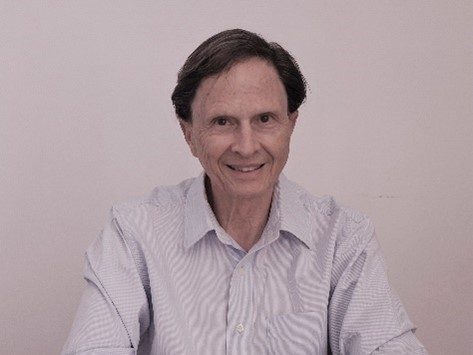
David Heymann
London School of Hygiene and Tropical Medicine
Keynote Plenary
David is a medical epidemiologist and Professor of Infectious Disease Epidemiology at LSHTM. He has held various leadership positions in infectious diseases at WHO, and in 2003 headed the WHO global response to SARS in his role as executive director of communicable diseases. In 1976, after spending two years working in India on smallpox eradication, he was a member of the CDC (Atlanta) team to investigate the first Ebola outbreak in DRC and stayed on in sub-Saharan Africa for 13 years in various field research positions on Ebola, monkeypox, Lassa Fever, malaria and other tropical diseases after which he was seconded by CDC to WHO. He has published over 275 peer reviewed articles and book chapters, is editor of the Control of Communicable Diseases Manual, and is an elected member of the UK Academy of Medical Sciences and the US National Academy of Medicine.
Session 1 : The threat landscape to emergencies for emergencies
Chair: Jeffery Cutter (ASEAN)
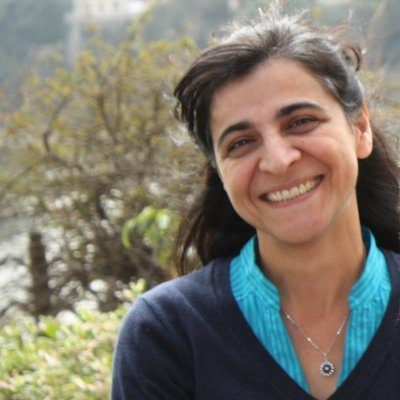
Chadia Wannous
World Organisation for Animal Health, France
Session 1.1
A changing hazard landscape: challenges and opportunities
Dr. Wannous is the One Health Global Coordinator and Senior Specialist for the World Organisation for Animal Health (WOAH) supporting One Health initiatives, including on emerging, remerging and endemic zoonotic diseases, AMR, food safety, and integrating the environment into the One Health approach.
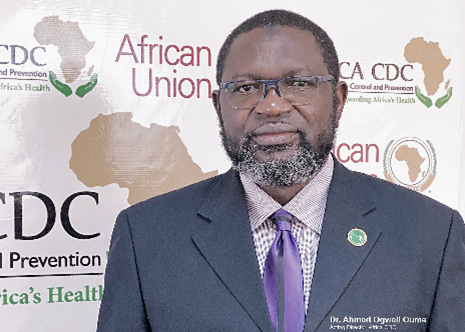
Ahmed Ogwell Ouma
Africa CDC, Addis Abeda, Ethiopia
Session 1.2
One Health emergencies in Africa
Dr. Ouma is currently the Acting and Deputy Director of Africa CDC. He works closely with African Union Member States and partners to deliver on the mandate of Africa CDC of preventing and controlling diseases in Africa. Ahmed has led the operations of Africa CDC during the COVID-19 pandemic, coordinating the planning, acquisition, and delivery of life-saving health products to African countries Formerly, he worked with the WHO at both the HQs and Regional Office for Africa, in combating NCDs & tobacco control. He also worked at country level in the Ministry of Health, Kenya. He has been at the forefront of advocacy and action to reform the health system in Africa including the need to establish an efficient & effective response mechanism for disease threats and health emergencies.
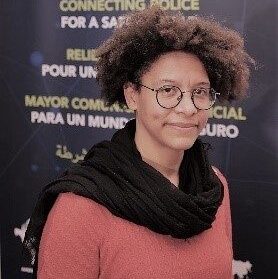
Fanny Ewann
INTERPOL, Lyon, France
Session 1.3
Agro-crime and agro-terrorism, an overlooked biological threat
Holding a PhD in microbiology, Fanny has worked as a researcher, then as a scientist in several research institutions across the globe. Owing to her specialization in infectious diseases, she worked extensively in Biosafety containment labs level 2 and 3, and developed expertise in biosafety and biosecurity. Recruited as a scientific officer by the European Union Joint Research Centre as biology expert for the EU Centers of Excellence for CBRN risk mitigation initiative, to perform technical evaluations of European projects, as well as to lead CBRN national needs assessment and support. Working in INTERPOL Bioterrorism Prevention Unit since 2017, her main task consists in the development and implementation of capacity building activities, and production of resources for INTERPOL Member countries with the goal of strengthening multiagency response to biological incident.
Agro-crime and agro-terrorism, an overlooked biological threat
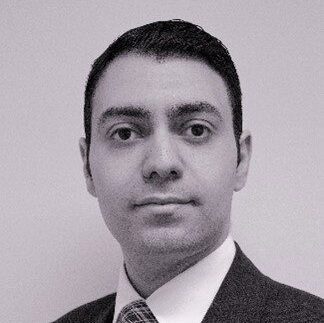
Saif Abed
World Health Organization, Switzerland
Session 1.4
Cyber-attacks, Infectious Diseases and the Next Global Public Health Emergency
Dr. Abed is a medical doctor, healthcare cybersecurity leader and cyber-diplomacy expert. He is a recognised subject matter expert within numerous sub-sectors of healthcare IT with a primary field of specialisation in cyber-warfare and crime targeting public sector healthcare systems and Chemical, Biological and Radio-Nuclear (CBRN) facilities. He is a cybersecurity consultant within the Biosecurity and Health Security Protection (BSP) Unit of the World Health Organization developing diplomatic and capacity building initiatives to support UN member states to enhance their cyber-resiliency across healthcare and CBRN fields. He holds multiple additional roles including as an independent expert for the European Commission’s European Health and Digital Executive Agency (previously Horizon 2020 programme) with a focus on healthcare security.
Session 2: Early Warning Systems
Chair: Matthew Stone (Global Preparedness Monitoring Board)
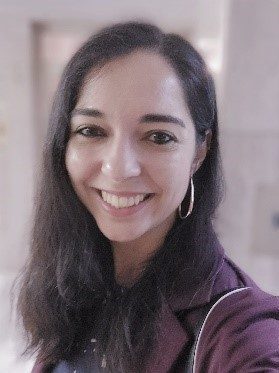
Lina Awada
World Organisation for Animal Health, France
Session 2.1
WOAH’s epidemic intelligence for decision making
Lina Awada is a veterinary epidemiologist (DVM, MSc, PhD) working for the World Organisation for Animal Health (WOAH). She has 12 years of experience in animal disease surveillance, reporting, epi-analysis and interpretation of information on animal health threats. She has contributed significantly to the management and modernisation of WOAH’s World Animal Health Information System (WAHIS) and is currently involved in WOAH’s data integration activities throughout the organisation. Her work helps to ensure that WOAH, its Members, and partners have a common view of animal health situations and activities based on the combination of relevant data sources to support decision making.

Nicholas Thomson
Pacific Security College, Australian National University, Australia
Session 2.2
Disrupting Crime, Improving Disease Surveillance Across Borders in the Mekong – A case study
Dr. Nick Thomson is a public health and human rights trained epidemiologist who spent 12 years working with Johns Hopkins School of Public Health in northern Thailand on a HIV and Drug Use research program based within the Research Institute for Health Sciences, Chiang Mai University. He is currently the senior health advisor for the Pacific Security College at the ANU and leads a program on Pandemics and National Security at the ANU’s National Security College. He was involved in countering vaccine disinformation efforts as part of the Northern Territory Government’s vaccine program across the COVID-19 vaccine roll out. Over the last two years he has worked with GI-TOC exploring the nexus of environmental crimes and biological threats across borders of the Mekong Region. Dr Thomson specialises in multi-agency approaches to the dual threat of transnational crime and emerging biological threats.
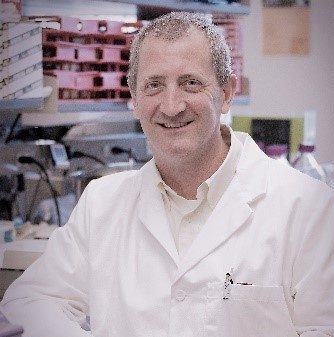
Harvey Morgan Scott
Institute for Infectious Animal Diseases (IIAD), USA
Session 2.3
Assessing vulnerabilities for agro-crime and agro-terrorism
Dr. H. Morgan Scott is a veterinarian holding a PhD in epidemiology and with post-doctoral training in public health. A professor of epidemiology in the Department of Veterinary Pathobiology at Texas A&M University (USA), he applies epidemiological and ecological ‘One Health’ approaches to addressing complex research problems at the interface of animal agriculture and human health. He has authored and co-authored more than 150 peer-reviewed papers since 1998 and served as an advisor to the Food and Agriculture Organization (FAO) of the United Nations, the World Health Organization (WHO), and the World Organization for Animal Health (WOAH, founded as OIE.

Annamaria Conte
Istituto Zooprofilattico Sperimentale dell’Abruzzo e del Molise G. Caporale, Italy
Session 2.4
Earth Observation data in emergency preparedness
Annamaria Conte is a Statistician, leading the Statistics and GIS Unit of the National Reference Centre for Epidemiology of the Istituto Zooprofilattico Sperimentale dell’Abruzzo e del Molise “G. Caporale” in Italy.
Her research is focused on epidemiological analytical methods and spatial epidemiology of major animal infectious diseases, including zoonoses, and on the identification of factors influencing the spread and persistence of vector borne diseases. Recent interests are on the integration of remoted sensed data and deep learning methods to produce early warning systems for preventing and controlling, emerging and re-emerging infectious diseases.
Session 3: Research and innovation in emergency management
Chair: Misheck Mulumba, WOAH Scientific Commission for Animal Diseases
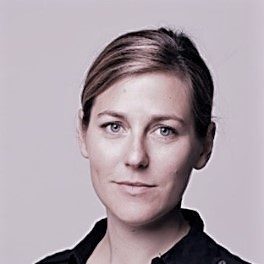
Maina L’Azou Jackson
CEPI, UK
Session 3.1
Spillover to Disease X: vaccine preparedness for the next pandemic threat
Maïna L’Azou Jackson is a Senior Scientist, Epidemiologist, for the Coalition for Epidemic Preparedness and Innovations, (CEPI).
Maïna L’Azou has spent 18 years in the field of epidemiology in vaccine development and in public health on epidemic and pandemic prone diseases with clinical practice experience in hospitals.
She worked as a field epidemiologist for the French National Institute for Public Health where she worked on various surveillance programs and outbreak investigations in France.
Subsequently, she worked for the World Health Organization in the International Health Regulations Coordination Department, where she carried out several field missions to assess and strengthen national capacities for surveillance and response in Central Africa.
With her public health spirit, she moved to Vaccine Development with Sanofi Pasteur in 2011 and supported global vaccine programs for tropical and endemic diseases before joining CEPI in 2020 just before the pandemic
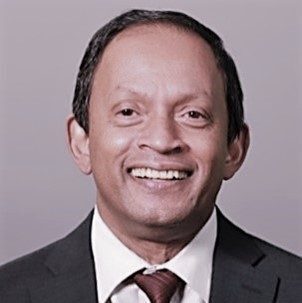
Primal Silva
BSL4Z Net, Canada
Session 3.2
Innovations in diagnostics
Dr. Primal Silva is a veterinarian and a scientist who has a PhD from the University of Sydney, Australia. He is currently the Chief Science Operating Officer, Canadian Food Inspection Agency responsible for providing strategic leadership and ensuring sound management of CFIA’s 13 laboratories. In 2016, he led the formation of the Biosafety Level 4 Zoonotic Laboratory Network (BSL4ZNet), a global alliance of government mandated organizations from five countries. He is also a contributing member to numerous committees at domestic and international levels including the World Organization for Animal Health and represents Canada as the Focal Point for OIE Reference Laboratories.

Salama Al Muhairi
National Emergency Crisis and Disasters Management Authority, UAE
Session 3.3
Engagement of the scientific community in emergency management
Dr. Salama Almuhairi graduated from Sussex University, UK with a Ph.D. in Genetics and Molecular Biology. She is currently the manager of the HAZMAT Research and Development Department in The National Emergency Crisis and Disaster Management Authority of UAE and a member of the UAE National Biosecurity Scientific Advisory Committee. She is working on developing a national mechanism for integrating research as part of the emergency management cycle and developing a national research roadmap for emergency management. Before her current position, she was the director of the Veterinary Laboratories in Abu Dhabi Agriculture and Food Safety Authority. Contributed with other experts in developing a guidance for national veterinary services to support public health services with COVID-19, an initiative from the World Organisation of Animal Health (WOAH).
Engagement of the scientific community in emergency management
Session 4: Resource mobilisation for emergencies (panel discussion)
Chair: Chadia Wannous, WOAH
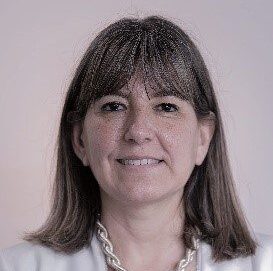
Alicia Gallardo
World Organisation for Animal Health, France
Veterinarian with more than 25 years of experience in the National Service of Fisheries and Aquaculture of Chile, as deputy director of Aquaculture and then as national director. She led the management of the ISA virus outbreak in the salmon industry, designing and implementing the aquaculture health management model. She was Vice Minister of Fisheries and Aquaculture, being the first woman in this position. During her term, she promoted the gender equity law in fisheries and aquaculture.
She is currently the first vice-president of the Aquatic Animal Health Standards Commission of the World Organization for Animal Health (OMSA), member of the FAO working group on biosecurity in aquaculture (PMP/AB), and advisor to the WOAH Collaborating Center for Antimicrobial Use Management in Aquaculture (CASA).
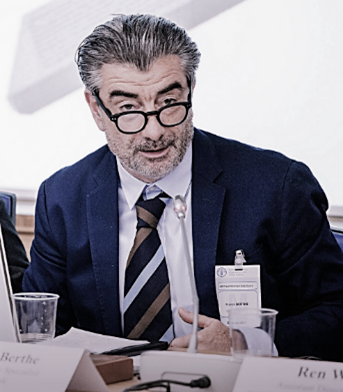
Franck Berthe
World Bank, USA
Dr. Franck Berthe is currently the Senior Specialist and One Health Lead for The Pandemic Fund. This Fund, hosted by the World Bank, finances critical investments to strengthen pandemic prevention, preparedness, and response capacities from national to global levels. Prior to this, Franck was working at the World Bank on public health issues across the agriculture, environment, water and public health sectors. He has authored or co-authored several Bank’s global analytical pieces on health security, food safety, antimicrobial resistance, and One Health. Before this, Franck was the Head of the Animal Health and Welfare Unit at the European Food Safety Authority (2007-2016), Canada Research Chair and Associate Professor at the Atlantic Veterinary College (2004-2007), and lead research scientist at IFREMER (1994-2004). He has served as an expert for WOAH from 1996 to 2020 on various specialized Commissions and ad hoc groups. Franck has a Doctorate in Veterinary Medicine (DVM), a PhD in molecular biology, and a Pasteur Institute diploma in bacteriology.

Anja Boshoff de Witt
Meat Board of Namibia, Namibia
Anja Boshoff graduated as a veterinarian from the University of Pretoria, Onderstepoort in 2008. She started her work career as a private veterinarian in a mixed animal practice, followed by State Veterinarian, Import and Export Control. She is employed by the Meat Board of Namibia as the Executive for the Meat Standards department since October 2014. This department administers the Farm Assured Namibian Meat Scheme, performs certain administrative functions on behalf of the Directorate of Veterinary Services (DVS), conducts Export Quality control at export approved abattoirs and works closely with the DVS in terms of animal disease control, producer compliance to rules and regulations and policy development.
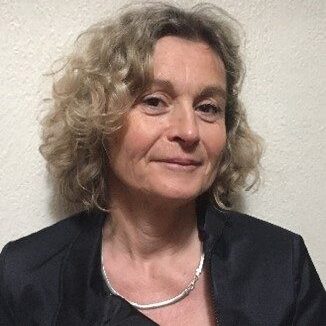
Anne-Sophie Lequarre
European Commission, Belgium
Trained as a veterinarian and molecular biologist, Anne-Sophie Lequarré worked twenty years doing research in virology, immunology and genomics related to livestock. In 2010, she joined the European Commission’s DG-Research to manage livestock research projects. Then, she moved to the Joint Research Centre as a biological threat expert for improving the coordination in biosafety and biosecurity measures in the EU. She was involved in the EU CBRN risk mitigation Centre of Excellence initiative supporting third countries to strengthen capacities for the reduction of biological risks whether from natural, accidental or criminal sources. She is now at the Service for Foreign Policy Instruments where she manages the CBRN CoE program and coordinates the African regions.
Session 5: Networking to prepare for emergencies
Chair: Barbara Alessandrini, WOAH
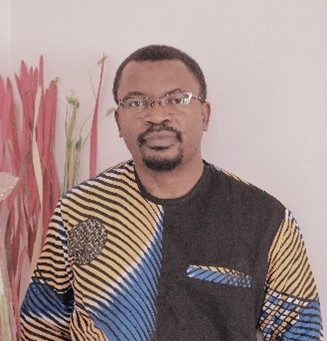
Jean-Marc Feussom
Network for Animal Diseases, Cameroon
Session 5.1
Cameroon’s One Health Taskforce
Veterinary epidemiologist, Risk Communication and One Health Expert with more than fifteen (15) years of experience working with academic institutions, research institutions, non-governmental organizations, and the Department of veterinary services of the Ministry of Livestock, Fisheries and Animal Industries (MINEPIA).
Deputy Director of Health Protection and Epidemiosurveillance and Permanent Secretary of the Epidemiological Surveillance Network for Animal Diseases in Cameroon
Some major activities: Organization of Animal Disease Surveillance and Management including zoonoses in Cameroon and Africa (Avian Influenza, Monkey, African Swine fever,), Establishment of the Animal Health Emergency Coordination Centre, Operationalization of the “One Health” platform, Development of policies and strategies for disease management, risk analysis and communication, “One Health” approach. Database management, modelling, and mapping
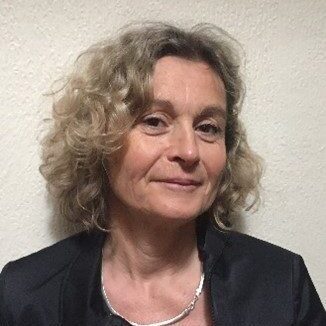
Anne-Sophie Lequarre
European Commission, Belgium
Session 5.2
Integrating One Health into chemical, biological, radiological and nuclear (CBRN) international networking
Trained as a veterinarian and molecular biologist, Anne-Sophie Lequarré worked twenty years doing research in virology, immunology and genomics related to livestock. In 2010, she joined the European Commission’s DG-Research to manage livestock research projects. Then, she moved to the Joint Research Centre as a biological threat expert for improving the coordination in biosafety and biosecurity measures in the EU. She was involved in the EU CBRN risk mitigation Centre of Excellence initiative supporting third countries to strengthen capacities for the reduction of biological risks whether from natural, accidental or criminal sources. She is now at the Service for Foreign Policy Instruments where she manages the CBRN CoE program and coordinates the African regions.

Heni Haj Ammar
Animal Health and the Tunisian National Taskforce for Bioterrorism, Tunisia
Session 5.3
Animal Health and the Tunisian National Taskforce for Bioterrorism
Doctor of Veterinary Medicine since 2001, from the Veterinary School of Sidi Thabet (Tunisia). CEC in epidemiology and statistics (2007).
Veterinary inspector at the General Directorate of Veterinary Services of the Ministry of Agriculture,
Heni is the deputy director for animal disease control. He also contributes to the elaboration and implementation of control strategies for the main animal diseases, and the setting up and monitoring of animal disease surveillance networks.
He was recently appointed as the focal point of the project Inter-institutional Coordination Strengthening Resilience against Bioterrorism and Agro-Crime Affecting Animal Health
Animal Health and the Tunisian National Taskforce for Bioterrorism

Jeffery Cutter
Association of South-East Asian Nations (ASEAN), Indonesia
Session 5.4
A regional approach for a multilateral preparedness plan for public health emergencies
Dr. Jeffery Cutter is Senior Consultant in the Public Health Group and Director of the National TB Programme and at the Ministry of Health, Singapore. He is a Fellow of the Academy of Medicine Singapore and Adjunct Associate Professor at the Saw Swee Hock School of Public Health, National University of Singapore. In terms of regional responsibilities, Dr Cutter is currently the Chair for ASEAN Health Cluster 2, which deals with public health threats in Southeast Asia.
Dr Cutter also serves as a member of the Technical Advisory Group for the Asia-Pacific Strategy on Emerging Diseases (APSED), a bi-regional framework established by WHO’s Western Pacific and South East Asia Regional Offices to strengthen country capacities to tackle public health emergencies.
Session 6: Capacity building for emergencies
Chair: Barbara Alessandrini, WOAH

Ludovic Plee
Food and Agriculture Organization for the United Nations, Italy
Session 6.1
Good Emergency Management Practice (GEMP): a multi-sectoral approach
HDr. Ludovic PLEE is a veterinary epidemiologist, specialized in Emergency Management and is the current Manager of the FAO Emergency Management Center. From 2016 to 2019, he worked in the FAO office in Jerusalem, with a focus of increasing the capacity of West Bank and the Gaza Strip on Food Safety, Plant Health and Animal health. From 2009 to 2016, he was seconded by the French Ministry of Agriculture to the FAO Crisis Management Center – Animal Health (CMC-AH) as a response officer. He participated as a trainer in many Good Emergency Management Practice workshops, and joined numerous emergency missions, especially on Foot-and-Mouth Disease, Avian Influenza, African Swine Fever and Rift Valley Fever. From 2003 to 2009, he worked for l’Agence Française de Sécurité Sanitaire des Aliments in the risk assessment department for Animal Health and as a veterinary advisor on legislative and risk communication aspects for the biggest farmer’s organization in France.
Good Emergency Management Practice (GEMP): a multi-sectoral approach

Stephen Goldsmith
Federal Bureau of Investigations (FBI), USA
Session 6.2
Joint criminal and epidemiological investigation training
Stephen W. Goldsmith, DVM is a Management Program Analyst in FBI Headquarters, WMD Directorate (WMDD), Chemical-Biological Countermeasures Unit, Washington, DC and a Subject Matter Expert for veterinary, animal, plant, and public health biological threat programs. Dr. Goldsmith was before that assigned to the FBI Hazardous Materials Science Response Unit, Laboratory Division, in Quantico (2006-2012)
His veterinary career includes rural veterinary practice in Georgia-Florida (1979-1989) and at the Contagious and Infectious Diseases Bureau, State Veterinarian, Florida Department of Agriculture (1989-1991).
From 1999 to 2001 he served at the US Embassy, in Bolivia as the USDA Chief of Mission for the FMD Eradication Program. Dr. Goldsmith served 30 years in US Army in Veterinary, Infantry, and Special Forces Units with deployments in Central-South America, Afghanistan, and the southern Philippines. He served as a Veterinary Corps Officer, Infantry Medical Platoon Leader, and a Special Forces Group Veterinarian and Preventive Medicine Officer.
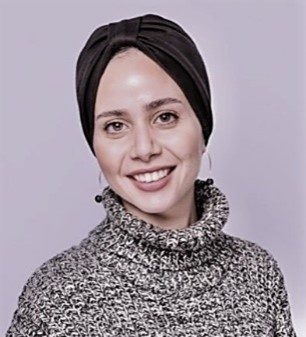
Nada Essawy
World Organisation for Animal Health, France
Session 6.3
WOAH’s support to the Global Partnership Signature Initiative to Mitigate Biological Threats in Africa
Nada Essawy is a Resource Mobilization and Grants Management Officer at WOAH since October 2022.
Her mission is to contribute to the sustainability of the Organization’s activities by maintaining and increasing the voluntary contributions.
Nada participates in the implementation of WOAH’s resource mobilization strategy as well as contributing to project management in coordination with WOAH technical teams.
Nada graduated from the German University in Cairo where she studied Pharmacy and Biotechnology for her bachelor’s degree. Then she pursed her postgraduate studies at University College London where she received her master’s degree in Pharmacogenetics and Personalised Medicine before integrating a joint PhD program between Sorbonne Université Paris and Freie Universität Berlin where she studied genetic muscle diseases. Before joining WOAH, Nada was an International Project Manager at the Department of International Affairs of Institut Pasteur based in Paris/France where she managed Public Health projects within and outside Pasteur Network in Africa and Asia.
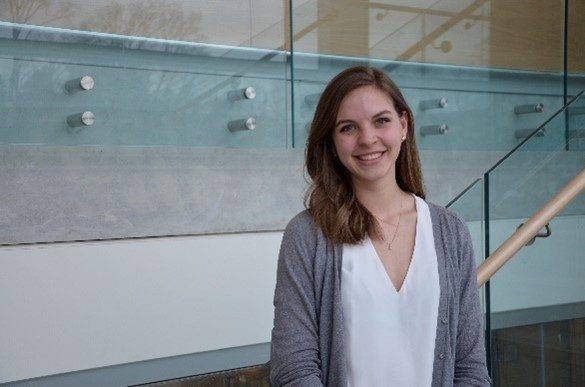
Madison Wimmers
World Organisation for Animal Health, France
Session 6.3
WOAH’s support to the Global Partnership Signature Initiative to Mitigate Biological Threats in Africa
Madison Wimmers is a Project Officer for Biological Threat Reduction in the Preparedness and Resilience Department at WOAH. She contributes to the development and implementation of activities which support the Organisation and Members in emergency management and biological threat reduction.
Prior to her current position, after completing her Master of Public Health in Canada she worked for three years as an Animal Health Information Analyst with the World Animal Health Information and Analysis Department at WOAH on the verification of reports submitted by Members and data management of the World Animal Health Information System (WAHIS).
Session 7: Simulation exercises
Chair: Gary Vroegindewey, Lincoln Memorial University
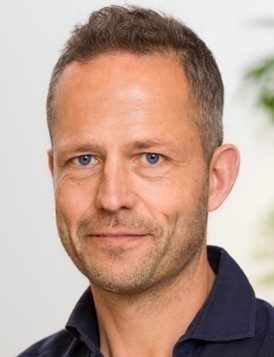
Karl Stahl
Swedish Veterinary Institute, Sweden
Session 7.1
Nordic Baltic Veterinary Contingency Group: A regional approach to simulation exercises
Prof. Karl Ståhl, DVM, PhD, is the State Epizootiologist and Head of the Department of disease control and epidemiology at the National Veterinary Institute (SVA), Uppsala, Sweden. He received a degree in Veterinary Medicine from SLU in 1998, and a Ph.D. in veterinary virology from the same university in 2006. Between 2007-2009 Dr Stahl was the scientific secretary at the OIE collaborating center for biotechnology-based diagnosis of infectious diseases in veterinary medicine at SVA, after what he based himself at Makerere University in Kampala, Uganda. Now on, as State Epizootiologist, he is responsible at the SVA for questions related to infectious diseases in animals and zoonosis, including risk assessments, disease surveillance and disease control. His research since 2010 has focused specifically on African swine fever (ASF). Dr Stahl is member of the Animal Health and Welfare Panel of EFSA. He is the Science Director of the Global African swine fever research alliance (GARA).

Joana Maia Pita
Portuguese Army, Portugal
Session 7.2
Celulex Exercise, a multi-agency CBRN exercise
Lieutenant Joana Maia Pita is from Lisbon, Portugal and graduated from Lisbon University in 2012. Before the graduation, Lieutenant Joana did an internship in the Portuguese Food Safety Authority and attended in the ERASMUS program in Copenhagen Life Faculty.
In 2012 she began a six year contract in the Portuguese Air Force, being responsible for the food safety and working with the military working dogs. In 2019 joined the Portuguese Army, working until now, in the Food Microbiology Laboratory and planning and conducting the simulation exercises in the Biological Defence area.
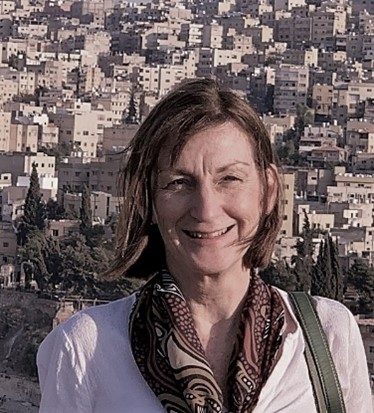
Kathy Gibson
European Commission for the Control of Foot-and-Mouth Disease (EuFMD), Italy
Session 7.3
Exercise Phoenix – preparing to respond to agroterrorism
Katherine (Kathy) Gibson is an Australian veterinarian working with the European Commission for the Control of Foot-and-Mouth Disease (EuFMD). Kathy works as an emergency preparedness specialist for foot-and-mouth disease and similar transboundary (FAST) diseases. Kathy previously worked with Animal Health Australia and with the Australian Government Department of Agriculture, Fisheries and Forestry in emergency preparedness and response. Kathy has developed a special interest in exercise management and enjoys the challenges of bringing together diverse teams to develop and deliver scenario-based workshops and simulation exercises.
Session 8: Gender and animal health emergencies
Chair: Katharina Stark, Federal Food and Veterinary Office, Switzerland
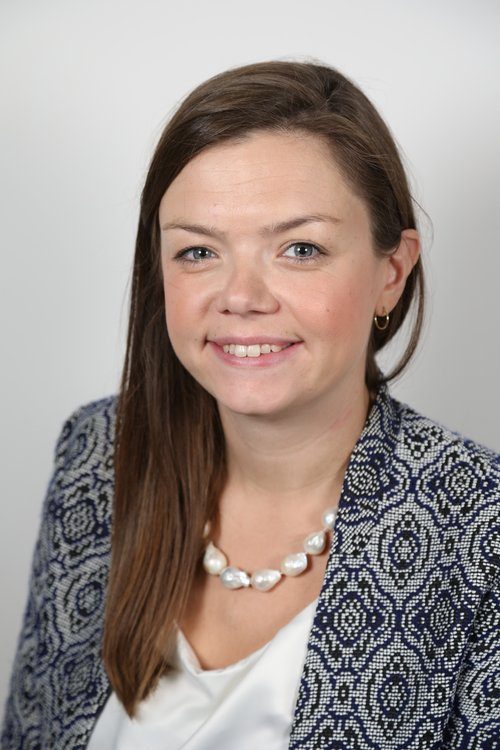
Clare Wenham
London School of Economics, UK
Session 8.1
A review of the integration of gender into animal health emergency preparedness
Clare is Associate Professor of Global Health Policy at London School of Economics (LSE). Her research seeks to understand how state and non-state actors prepare for and respond to epidemics; what political challenges there are in the global health architecture; and what are the downstream, secondary effects of policies introduced to mitigate epidemics, particularly those on women. She is the author of Feminist Global Health Security (Oxford University Press, 2021) and Declaring a Public Health Emergency of International Concern (Bristol University Press, 2021).
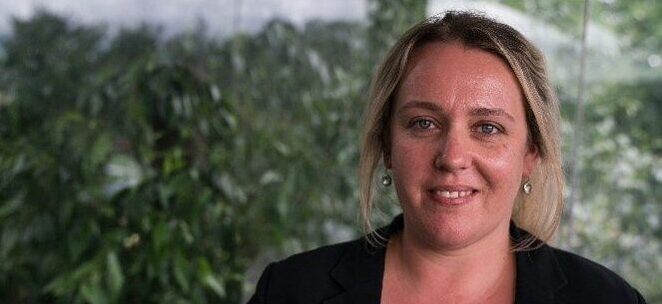
Anna Okello
Australian Centre for International Agricultural Research – ACIAR, Australia
Dr. Anna Okello is the Research Program Manager for Livestock Systems and One Health at the Australian Centre for International Agricultural Research, a specialist food security agency within the Australian government’s foreign aid portfolio. A registered veterinarian, Anna holds a PhD in political science from the University of Edinburgh, where she maintains an academic teaching role. Anna has worked in international livestock development and public health for more than 15 years, holding management and research roles in Non-Government Organizations, the University of Edinburgh, United Nations agencies and the Australian government. Anna has a strong interest in funding research for development projects that highlight the broader societal roles of livestock – including social protection and gender equity – in addition to their important role in global food systems.
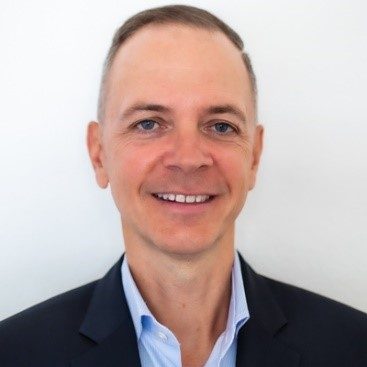
Scott Spence
Pontica Group LLC, USA
Mr Scott Spence has two decades of experience as a public international lawyer in supporting Governments to implement international legal instruments, including those with the objective of preventing the proliferation of weapons of mass destruction by non-State actors. In 2017, he was appointed by UN Secretary General to serve as one of nine Experts supporting the UN Security Council Committee. He previously worked at London-based VERTIC (2008-2018) as the Director of the National Implementation Measures Programme and as a Senior Legal Officer. Before VERTIC, he worked as a Project Manager at INTERPOL, as an Expert and Researcher at the Organisation for the Prohibition of Chemical Weapons (OPCW) (2013 Nobel Peace Prize Winner) and as an Associate at Freshfields Bruckhaus Deringer.
To better fulfill his objectives, he developed the National Legislation Implementation Kit on Nuclear Security as well as VERTIC’s Legislative Guide to National Implementation of UN Security Council Resolution 1540 and the OPCW’s National Legislation Implementation Kit for the Chemical Weapons Convention. He also co-developed VERTIC’s Sample Act and Regulatory Guidelines for national implementation of the Biological Weapons Convention.
When the outdoors beckons, he’s an avid skier, hiker and standup paddler.

Nonye Welle
Nigeria Police Force, Nigeria
Dr. Chinonyerem Chisom Lawrence Welle is an Assistant Commissioner of Police and the Chief Medical Director of Police Hospital Garki, Abuja. She has served in various capacities in the Nigeria Police Force and has attended various courses on Biosecurity, Bioterrorism prevention, Emergency preparedness Lifestyle Medicine and Sexual and Gender-Based Violence both in Nigeria and internationally. She is the Biosecurity Nodal Officer for the Nigeria Police Force in capacity of which she has been training police officers on biosecurity, bioterrorism prevention and preparedness. She also partners with the United Nations and African Union in screening officers for mobilization to Peace Keeping Missions.
Session 9: Emergency response
Chair: Madhur Dhingra, FAO
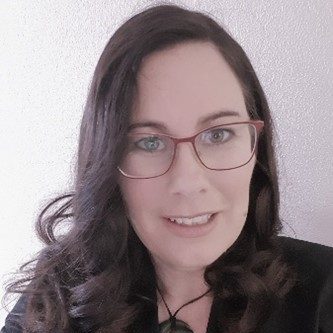
Hayley Squance
BML Consulting Limited, New Zealand
Session 9.1
Strategies for implementing One Welfare into emergency response
Hayley Squance is a veterinary professional and emergency management expert. She holds a PhD in Emergency Management and served as the Ministry for Primary Industries (NZ) national coordinator for animal welfare during disaster events for 5 years. Hayley also led the development of the first veterinary emergency response team in Australasia and was deployed to various crises, including the 2011 Christchurch earthquakes. Hayley now works with public and private sectors to promote an integrated approach to emergency management and improve emergency management capability, while keeping pace with a rapidly changing environment. Hayley’s focus is on promoting people, animal and environmental well-being during emergencies.
Strategies for implementing One Welfare into emergency response

Maxat Berdikulov
“National reference veterinary center” Committee for Veterinary Control and Supervision of the Ministry of Agriculture of the Republic of Kazakhstan, Kazakhstan
Session 9.2
Veterinary laboratory support to the COVID-19 response
Graduated from Kazakh State Agrarian University in Almaty, Kazakhstan. Started his professional career as veterinarian and spent over twenty years working in National Research Centers and Universities, author of research papers for veterinary science. Currently working as General Director of National Reference Center for Veterinary of the Committee for Veterinary Control and Supervision of the Ministry of Agriculture of the Republic of Kazakhstan, which offers reference diagnosis of animal diseases, food safety and control of veterinary drugs.
Key research interests are immunology, laboratory diagnosis of infectious diseases, veterinary biotechnology.
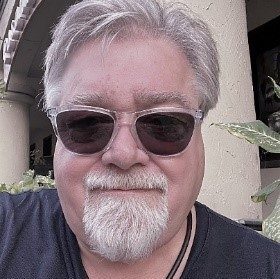
Guy Collyer
Quadrant Intelligence and Security Services, (QISS global), UK
Session 9.3
Challenges faced by first responders
Guy Collyer is the Managing Director of Quadrant Intelligence and Security Services (QISS Global). This nonprofit organization provides bespoke guidance and training on the nefarious use of chemical, biological, radiological and nuclear materials.
Guy spent 30 years in the UK Police Service being seconded to the National Counter Terrorism Security Office in 2002. During this time, he also represented the UK on the EU CBRN Task Force on chemical and biological weaponry. In 2011 he was made an OBE in the Queen’s birthday honors for public service.
Guy has also been the Head of the BioTerrorism Prevention Unit in INTERPOL. With his team, Guy devised many training programs that were delivered around the world, including the creation of a Biosecurity working group in West Africa during the 2014 Ebola outbreak. Guy was awarded the Afghanistan National Police Medal of Honour in 2014, for his work in developing and delivering Counter Terrorism training programmes to the ANP.
As well as his work with QISS, Guy still works as a consultant for the United Nations.
Session 10: Response to complex emergencies
Chair: Adrien Sivignon, INTERPOL

Ivancho Naletoski
International Atomic Energy Agency, Autriche
Session 10.1
Response to nuclear and radiological emergencies affecting animal health
He graduated at the Veterinary Faculty in Zagreb, Croatia during 1989. Stared his research in development and validation of steroid hormone assays and continued at MSc program on the control of foot-and-mouth disease participated in the international validation of 3 ABC ELISA for detection of antibodies FMDV-(Outbreaks in the Balkan region – 1996), and PhD on the epidemiology and importance of BVD in North Macedonia. Appointed as a head of the national diagnostic laboratory, later head of the national veterinary institute in North Macedonia. Since 2010 works as technical Officer for Animal Health at the Animal Production and Health Section of the Joint FAO/IAEA Centre in Vienna, Austria and is responsible for multiple technical cooperation and coordinated research projects, as well as for the implementation of the programmatic activities of the team.
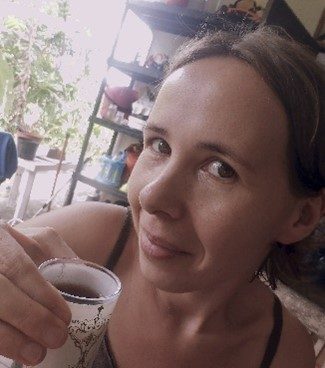
Jennifer Pradel
CaribVET, France
Session 10.2
A regional response to a volcanic disaster occurring, the experience of CaribVET
Jennifer Pradel is a veterinary epidemiologist, researcher at CIRAD and honorary member of the Caribbean network of animal health (CaribVET) which she ran and coordinated with fellow Caribbean colleagues over 10 years.
A specialist in epidemiological surveillance, she holds a Master of research degree in Environment and health as well as a PhD in Medical entomology. She has worked on West Nile surveillance in France and in Guadeloupe. Member of the French DGAL’s (Directorate general for food) One Health expert panel for health monitoring, she works on the operationalization of complex cooperations by adopting change-oriented approaches on health issues or socio-ecological emergencies.His veterinary career includes rural veterinary practice in Georgia-Florida (1979-1989) and at the Contagious and Infectious Diseases Bureau, State Veterinarian, Florida Department of Agriculture (1989-1991).
From 1999 to 2001 he served at the US Embassy, in Bolivia as the USDA Chief of Mission for the FMD Eradication Program. Dr. Goldsmith served 30 years in US Army in Veterinary, Infantry, and Special Forces Units with deployments in Central-South America, Afghanistan, and the southern Philippines. He served as a Veterinary Corps Officer, Infantry Medical Platoon Leader, and a Special Forces Group Veterinarian and Preventive Medicine Officer.

Chris Morley
Chris Morley Consulting Ltd, New Zealand
Session 10.3
A real agro-terrorism case
Chris is a veterinary epidemiologist based in New Zealand. He has over 25 years’ experience in clinical practice, government operational leadership roles in the UK, Canada and New Zealand and readiness and response roles with the New Zealand dairy sector. For the past five years he has undertaken independent consultancy work for government, private sector and intergovernmental agencies, primarily following his interest in emergency management. This approach supports an all-hazard approach to readiness and response capability, with government and private sectors. Chris has supported the Bioterrorism Prevention Team at Interpol, as a subject matter expert in Agricultural terrorism since 2012.

Ian Jensen
(formerly) Metropolitan police, UK
Session 10.3
A real agro-terrorism case
Ian is a former Metropolitan Police Detective Inspector based in the UK. He has over 30 years’ experience as an Investigator and intelligence professional. Ian has investigated a range of complex, serious crimes including Child abuse, homicide, international terrorism and Domestic Extremism. Ian has collaborated with Europol, Interpol and the Club of Berné where he worked to develop strategies that combat extremism and domestic terrorism. Ian Has worked with UK and international intelligence services , law enforcement and judiciary to support proactive and reactive investigations throughout the world.
Session 11: Risk communication and community engagement
Chair: Andrea Ellis, Consultant

Peter Ballantyne
Consultant, UK
Session 11.1
Disinformation and misinformation; a shared threat for veterinary services and law enforcement
Peter is a communications and knowledge sharing specialist. For the WOAH-FAO-INTERPOL ‘agro-crime and agro-terrorism’ project, he recently facilitated virtual workshops on misinformation (June 2022) and agro-crime (July 2020). In 2020 and 2021, he also facilitated three WOAH virtual regional conferences. He currently leads communications and engagement activities for the Jameel Observatory on Food Security Early Action based at the University of Edinburgh and International Livestock Research Institute – where he previously led the Communications and Knowledge Management team. He has participated in research projects, written articles and reports, and acted as editor, publisher, evaluator, blogger, webmaster, as well as workshop, writeshop and conference facilitator.
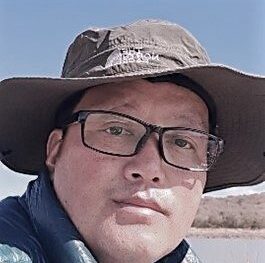
Tenzin Tenzin
World Organisation for Animal Health, France
Session 11.2
Community engagement in response to rabies
Dr. Tenzin is a veterinary epidemiologist and has a PhD in rabies epidemiology from Sydney School of Veterinary Science, University of Sydney, Australia. He is from Bhutan and has worked in the Department of Livestock, Royal Government of Bhutan for many years coordinating disease prevention and control programs including rabies. Currently, he is working at the WOAH Sub-Regional Representation for Southern Africa, Botswana as the Rabies Project Coordinator since 2019, coordinating the rabies elimination Project in Namibia. He also provides technical support on rabies elimination activities to the Members in Southern Africa region.
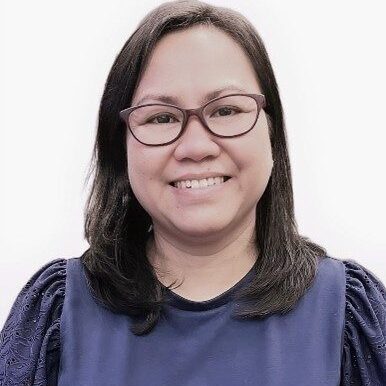
Janice Garcia
Bureau of Animal Industry, Philippines
Session 11.3
Risk communication for African swine fever
Dr. Janice Garcia is a veterinarian at the Department of Agriculture of the Philippines. She is currently part of the Animal Disease Control Section under the Animal Health and Welfare Division. She is also designated as the cluster coordinator of the National African Swine Fever Prevention and Control Program (NASFPCP), providing oversight and monitoring to the Program’s key components’. Her areas of focus include veterinary epidemiology and veterinary public health, animal health program management and risk communication.
Prior to joining the government service, Dr. Garcia was involved in the emergency response and rehabilitation/recovery projects under the Food and Agriculture Organization of the United Nations (FAO), focusing on agriculture-based livelihoods. She was assigned for field operations in areas affected by Super Typhoon Haiyan in 2013.
Session 12: Recovery and learning from emergencies
Chair: Gail Carson, WHO Global Outbreak Alert Response Network

Iivi Luuk
Estonian Ministry of the Interior
Session 12.1
After-action: what next?
Iivi Luuk is a crisis management and coordination expert who has been working in the field for the last 18 years including in UNDAC and EU civil protection teams, law enforcement and civil-military cooperation. She holds a Masters degree in international security and conflict resolution and has long-standing experience in preparedness, deployment and coordination of civil emergency response teams in crises.

Gordon Hickman
Department for Environment, Food & Rural Affairs (DEFRA), UK
Session 12.2
Lessons identified from the AI epidemic for emergency management
Gordon has an honours degree in agriculture from Reading University. He spent 18 years as an agricultural adviser in Southern England specialising in business management and waste & environmental management. In May 2001, he was seconded to the UK Ministry of Agriculture Fisheries and Food to assist with the disposal operations during the 2001 FMD outbreak, joining Defra on a permanent basis in 2004.
Between 2004 and 2016 he held various contingency planning roles in the Animal & Plant Health Agency This included leading on contingency planning and business continuity. He was also responsible for the management and delivery of the centralised tracings, surveillance, and licensing teams.
Gordon is currently Head of exotic disease control in Defra, where he is responsible for policy and legislation for exotic notifiable diseases of animals, new and emerging animal disease threats and surveillance policy. This includes policy preparedness and response for disease outbreaks.
Lessons identified from the AI epidemic for emergency management
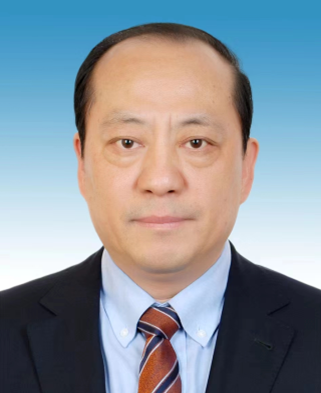
Gongmin Wang
Bureau of Animal Husbandry and Veterinary Services, Ministry of Agriculture and Rural Affairs (MARA), P. R. China
Session 12.3
ASF in China: Current Status, Control Measures and Experience
Gongmin Wang is the Deputy Director General (DDG) of the Bureau of Animal Husbandry and Veterinary Services, Ministry of Agriculture and Rural Affairs (MARA), China. He received his Bachelor’s degree in Veterinary Medicine from China Agricultural University in 1988. After that, he worked at MARA on animal health for many years. From 2007 to 2013, he had served as the Deputy Director at China Animal Disease Control Center, focusing on animal disease control technologies. Since 2013, he has been working at MARA as the DDG on the management of national animal health, international veterinary affairs, and import/export quarantine. Mr. Gongmin Wang has solid knowledge, expertise and experience in animal health, animal disease control and prevention, emergency preparedness and response, veterinary import/export management.
ASF in China: Current Status, Control Measures and Experience
Calls for Action
Recommendations and calls for action that were decided at the Conference.
-
Recommendations, Global Conferences
Recommendations and Calls for Action – Global Conference on Emergency Management
.pdf – 218 KB See the document
Book of Abstracts and Posters
-
Programme
Programme and Book of Abstracts
.pdf – 3 MB See the document -
.pdf – 62 MB See the document

